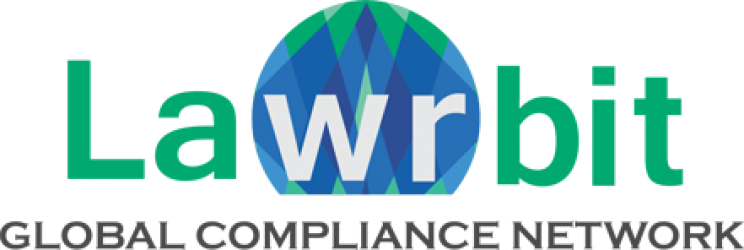Introduction
The Pharmaceutical industry stands at the intersection of innovation and regulation, with technology serving as the catalyst for transformative advancements. In this digital era, technology permeates every aspect of drug discovery, development, manufacturing, and distribution, revolutionising traditional practices and driving unprecedented progress. However, alongside these advancements, stringent regulatory frameworks govern the implementation of efficacy and compliance. This article delves into the pivotal role of technology in reshaping the pharmaceutical landscape while navigating the complex terrain of regulatory compliance.
Technological Advancements in Drug Discovery and Development
- High – Throughput Screening (HTS) and Artificial Intelligence:
- HTS techniques coupled with AI algorithms accelerate the identification of potential drug candidates by analysing vast databases and predicting molecular interactions.
- AI-Driven drug design expediates the process of lead optimization, reducing the time and resources required for preclinical studies.
- Omics The branches of science known informally as omics are various disciplines in biology whose names end in the suffix -omics, such as genomics, proteomics, metabolomics, metagenomics, phenomics and transcriptomics. Technologies:
- GenomicsThe study of the complete set of DNA (including all of its genes) in a person or other organism., proteomicsAnalysis of the entire set of proteins in cells, tissues, or an organism at a certain time and under defined conditions that involves the large-scale study of proteins, their physiological roles, or functions., and metabolomicsLarge-scale study of small molecules, commonly known as metabolites, within cells, biofluids, tissues or organisms. Collectively, these small molecules and their interactions within a biological system are known as the metabolome. offer insights into disease mechanisms, enabling personalised medicine approaches and targeted therapies.
- Next-generation sequencing (NGS) facilitates genome sequencing at unprecedented speed and cost-effectiveness, revolutionizing the understanding of genetic disorders and drug responses.
Enhancing Manufacturing Efficiency with Automation and Monitoring
- Automation and Robotics:
- Automated systems streamline manufacturing processes, minimizing human error and ensuring consistency in drug production.
- Robotics enable high-precision tasks such as dispensing, mixing, and packaging, enhancing efficiency and scalability.
- Continuous Manufacturing:
- Continuous processing replaces traditional batch manufacturing, enabling real-time monitoring and control of drug synthesis.
- Reduces production costs, shortens time-to-market, and enhances flexibility in responding to fluctuations in demand.
Digital Health Technologies and Patient Care
- Telemedicine and Remote Monitoring:
- Telemedicine platforms facilitate virtual consultations, improving access to healthcare services and reducing the burden on physical infrastructure.
- Remote monitoring devices enable real-time tracking of patient vital signs and medication adherence, enhancing disease management and clinical outcomes.
- Wearable Devices and Health Apps:
- Wearable sensors and mobile applications empower individuals to monitor their health metrics, fostering proactive health management and early intervention.
- These technologies also facilitate clinical trials by enabling remote data collection and patient engagement, accelerating the drug development process.
Regulatory Compliance in the Era of Medical Technology
- Good Manufacturing Practices (GMP):
- GMP regulations govern the quality control and assurance of pharmaceutical manufacturing processes, ensuring adherence to established standards for safety and efficacy.
- Technological advancements such as data integrity systems and electronic batch records (EBRs) support GMP compliance by enabling real-time monitoring and documentation of manufacturing operations.
- Regulatory Submission and Approval Processes:
- Regulatory agencies such as the Food and Drug Administration (FDA) in The US and European Medicine Agency (EMA) across the European Union require comprehensive documentation of product quality, safety, and efficacy for marketing authorization.
- Electronic submission platforms and regulatory information management systems (RIMS) facilitate the compilation and submission of regulatory dossiers, streamlining the approval process.
Some of the Drug Regulatory Authorities across the world –
| Countries/Regions | Drug Regulatory Authority |
|---|---|
| United States | Food & Drug Administration (FDA) |
| European Union | European Medicines Agency (EMA) |
| United Kingdom | Medicines and Healthcare Products Regulatory Agency (MHRA) |
| Canada | Health Canada |
| Australia | Therapeutic Goods Administration (TGA) |
| Japan | Pharmaceutical and Medical Devices Agency (PMDA) |
| China | National Medical Products Administration (NMPA) formerly known as the China Food and Drug Administration (CFDA) |
| India | Central Drugs Standard Control Organisation (CDSCO) |
| Brazil | Agencia Nacional de Vigilancia Sanitaria (ANVISA) |
| South Africa | South African Health Products Regulatory Authority (SAHPRA) |
- Data Security and Privacy:
- Compliance with Data Protection regulations such as GDPR and HIPAA is paramount to safeguarding patient privacy and confidentiality.
- Secure data management systems and encryption protocols ensure the integrity and confidentiality of sensitive healthcare information, mitigating the risk of data breaches and regulatory non-compliance.
The General Data Protection Regulation (GDPR) is a comprehensive Data Protection law that applies to the processing of personal data of individuals within the European Union (EU) and European Economic Area (EEA). Here’s how GDPR specifically applies to the Pharmaceutical Sector:
- Clinical Trials
Pharmaceutical companies conducting clinical trials involving individuals in the EU/EEA must comply with GDPR when collecting, storing, and processing personal data of trial patients. This includes obtaining informed consent, ensuring data security and respecting individual’s rights under GDPR. - Data Protection Impact Assessments (DPIAs)
GDPR may require pharmaceutical companies to conduct DPIAs for high-risk processing activities that involve Personal information, specifically Sensitive Personal Information such as Medical Health Records. - Healthcare Professionals
Companies interacting with healthcare professionals (HCPs) in the EU/EEA, such as for promotional activities or medical education must comply with GDPR when handling personal data of these individuals.
HIPAA, the Health Insurance Portability and Accountability Act, primarily focuses on protecting the privacy and security of health information in the United States. While it is often associated with healthcare providers and insurers, it also applies to the pharmaceutical sector in several ways:
- Privacy Rule Compliance
Pharmaceutical companies may handle protected health information (PHI) when conducting research, clinical trials, or marketing activities. HIPAA’s Privacy Rule governs how PHI can be used and disclosed, requiring appropriate safeguards to protect patient information. - Business Associate Agreements (BAAs)
Pharmaceutical companies often work with healthcare providers or health plans in various capacities. When they do, they may be considered business associates under HIPAA. This requires signing BAAs that outline responsibilities for handling PHI and ensuring compliance with HIPAA regulations. - Security Rule Requirements
HIPAA’s Security Rule mandates that entities handling PHI, including pharmaceutical companies, implement safeguards to protect the confidentiality, integrity, and availability of electronic PHI (e-PHI). This includes measures such as access controls, encryption, and audits. - Marketing and Research
Pharmaceutical companies engage in marketing activities that involve PHI, such as targeted advertising or patient outreach. HIPAA permits certain uses of PHI for marketing purposes with patient authorization and regulates the use of PHI in research to protect subjects’ privacy.
Regulating the Pharmaceutical Industry
Regulating the pharmaceutical industry is a critical task for ensuring the safety, efficacy, and quality of medications worldwide. Various drug regulatory authorities, such as the European Medicines Agency (EMA) and the World Health Organization (WHO), play pivotal roles in overseeing drug approval processes and setting standards. The US Food and Drug Administration (FDA) is particularly influential due to its comprehensive, Stringent and Centric regulatory framework. In the United States, FDA plays a central role in regulating the pharmaceutical industry. Key regulations and guidelines include:
- Current Good Manufacturing Practices (CGMP)
Current Good Manufacturing Practices ensure the consistent production and control of pharmaceutical products to meet rigorous quality standards and mandates thorough documentation, stringent process controls, and effective material management. Additionally, it requires precise packaging and labelling, regular compliance inspections, and responsive complaint and recall procedures. - New Drug Application (NDA)
Before a new drug can be marketed in the US, it must undergo rigorous evaluation through an NDA submission to demonstrate safety and efficacy. - Abbreviated New Drug Application (ANDA)
Generic drugs are approved through an ANDA submission, which demonstrates bioequivalence to an already approved reference drug. - Drug Labelling and Advertising
Regulations (21 CFR Parts 201, 202, 314) govern drug labelling to ensure it provides accurate information on use, risks, and benefits. Advertising must be truthful and not misleading. - Post-Marketing Surveillance
Continuous monitoring of drugs on the market for adverse events and effectiveness through programs like MedWatch and Risk Evaluation and Mitigation Strategies (REMS).
Ensuring Global Standards: The Imperative of Regulatory Compliance
In the realm of pharmaceuticals, adherence to regulatory compliance is not merely a regulatory burden but a fundamental requirement that underpins the entire industry’s integrity and reliability. Regulatory bodies around the world impose strict guidelines to ensure that medications meet stringent standards of safety, efficacy, and quality before they reach patients. These regulations encompass every stage of the pharmaceutical lifecycle—from research and development to manufacturing, distribution, and marketing.
The primary goal of regulatory compliance is to safeguard public health by minimizing risks associated with pharmaceutical products. By enforcing comprehensive guidelines and protocols, regulatory agencies aim to mitigate potential harm to patients, ensure consistent quality of medications, and uphold ethical standards within the industry. This rigorous oversight not only protects consumers but also fosters trust among healthcare providers and regulatory authorities globally.
For pharmaceutical companies, navigating the complex landscape of regulatory compliance is both a challenge and an opportunity. Compliance requires robust systems and processes to ensure that every aspect of operations meets regulatory expectations. From conducting rigorous clinical trials to documenting manufacturing processes and ensuring transparent labelling and advertising practices, companies must demonstrate diligence and transparency at every step.
Moreover, adherence to regulatory compliance enhances market access and facilitates global expansion for pharmaceutical companies. Products that meet regulatory standards are more likely to gain approval in multiple markets, thereby broadening their reach and potential impact on global healthcare. Compliance also plays a pivotal role in maintaining competitive advantage, as companies that prioritize quality and safety are perceived more favourably by healthcare professionals and patients alike.
Conclusion
In conclusion, regulatory compliance is the bedrock of the pharmaceutical industry’s integrity and success. As we look ahead, the importance of regulatory compliance in the pharmaceutical sector will only continue to grow. Emerging technologies such as artificial intelligence and blockchain offer new opportunities to enhance compliance monitoring and ensure data integrity throughout the supply chain. These innovations have the potential to revolutionize regulatory practices, making compliance more efficient, transparent, and adaptable to future challenges.
In essence, regulatory compliance is not just a regulatory requirement but a cornerstone of ethical pharmaceutical practices worldwide. By upholding these standards, pharmaceutical companies not only fulfil their legal obligations but also contribute to a safer and more trustworthy healthcare ecosystem for patients everywhere.
Disclaimer
The information provided in this article is intended for general informational purposes only and should not be construed as legal advice. The content of this article is not intended to create and receipt of it does not constitute any relationship. Readers should not act upon this information without seeking professional legal counsel.



